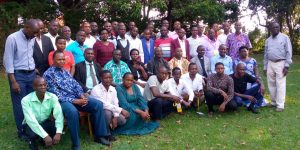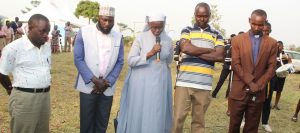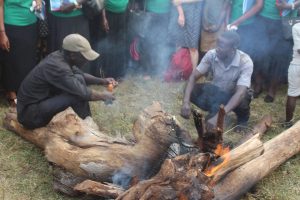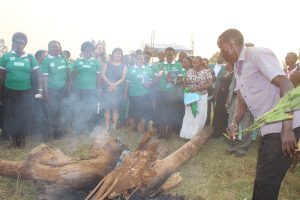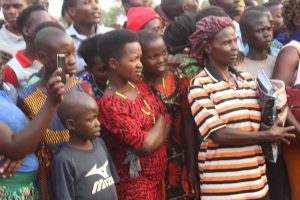Poverty, Vulnerability, Marginalization and Access to Justice in Uganda, Uganda is a signatory to a number of international and regional instruments that seek to guarantee access to justice as an inalienable right to Ugandans. The Ugandan Government has also introduced policy and domestic legislation that seeks to regulate or promote access to justice for various groups or individuals. The legal and policy framework notwithstanding, a significant part of the population can be categorized as poor, vulnerable and marginalized. Such groups of people often struggle or fail to access justice.
The youth, women and children are the poor and vulnerable are the primary victims of marginalization, discrimination, exclusion and exploitation which further exacerbate their situation, leading to extreme forms of poverty and vulnerability. It is therefore imperative that Uganda devises means of ensuring that the most affected individuals and populations are identified for priority action including affirmative action, at the same time establishing longer term measures for sustainable service delivery for other categories facing challenges. Without effective, inclusive and affordable access to justice mechanisms, the poor, vulnerable and marginalized are denied the opportunity to enjoy, claim or reassert their rights or challenge breaches thereof.
In sum, the barriers to justice that are attitudinal, procedural or physical have the effect of denying these groups the appropriate standard of justice that is critical for resolving some root causes of marginalization, discrimination, poverty and vulnerability. Therefore, the progression towards comprehensive legal aid programs is critical in restoring some of the balance in favor or vulnerable and marginalized groups. However, it is important to note that to improve access justice for such categories of people requires tackling a range of legal, socio-economic and cultural barriers that exist in the formal and non-formal justice system.
Interventions:
Western Uganda FBO Network and partner faith-based organizations advocates and scale up the following interventions:
- Extend the reach of legal aid services to offer more comprehensive services. For example, WUFBON will work with closely with labor officers and social workers/ probation officers could be part of the justice centre, following the example of the current WUFBON interfaith hub system. This is in recognition of the fact that vulnerable &marginalized groups need counseling and psycho-social support, not just legal solutions. Alternatively, lawyers should be trained to offer counseling services.
- Advocate for automatic waivers of court fees for indigent persons, and thus there is a crucial need to further analyze the applicability and relevance of Order 33 of the Civil Procedure Rules, which provides for Pauper Suits.
- Link Legal Aid Service with religious and cultural institutions to ensure that they adhere to natural justice principles.
- Western Uganda FBO Network will conduct baselines before initiating legal aid service provision projects and also use data from UBOS Household and
demographic surveys and State of the Population report. Information on behavior and attitudes will be obtained from Afro-barometer. - Western Uganda FBO Network will establish partnership with EOC which has the mandate for vulnerable and marginalized groups.
- It is also important for Western Uganda FBO Network to strengthen appreciation for legal aid in JLOS and the legal profession especially State briefs and pro-bono scheme, and sensitize State institutions about the importance of legal aid.
- Western Uganda FBO Network should continue to promote legal literacy, recognition the role of non-lawyers – (students and paralegals) in legal aid and encourage partnerships with advocates in private practice. The Legal Education Curriculum should actively promote Clinical Legal Education and inspire more lawyers to take up “community legal advisor.”
- It is crucial to ensure sustainability of Western Uganda FBO Network Access to Justice Projects by finding alternative sources of funding.
- Further and more in-depth research is required to pin-point exactly who and where the poor are in each district, region or town of Uganda. Other aspects that should be studied further include issues of pecuniary and geographical jurisdiction over various civil and criminal matters and how these affect access to justice. It is also important to analyze whether and how the Civil Procedure Rules on Pauper Suits (Order 33) are being applied and whether they can adequately address financial barriers to access to justice for the poor in Uganda.

